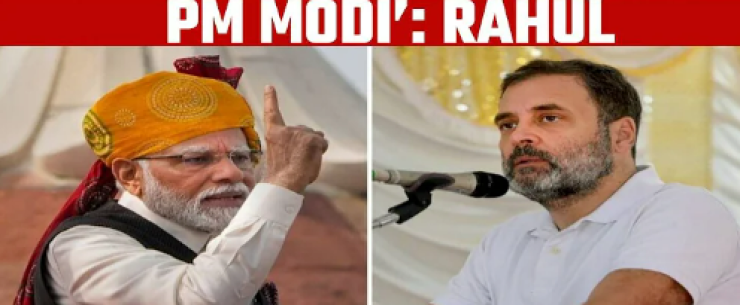
As India's heated general election campaign intensifies, a trio of respected public figures has issued an unexpected invitation - for Prime Minister Narendra Modi and opposition leader Rahul Gandhi to participate in a public debate. The proposal from two former senior judges and a veteran journalist has sparked a political firestorm, with Congress accepting the challenge but the BJP deflecting it.
In a letter this week, former Supreme Court judge Madan B. Lokur, former Delhi High Court chief justice A.P. Shah, and journalist N. Ram called for the two main party leaders to engage in a televised debate on key election issues. They expressed concern that the public has "only heard allegations and challenges from either side and not any meaningful responses" on substantive topics like the economy, social justice, foreign policy and constitutional principles.
"In these circumstances, it is fundamentally important to ensure that the public is well educated about all aspects of the debate, so that they can make an informed choice at the ballots," the letter stated. It suggested the debate format and moderators could be mutually agreed, proposing it take place on a "non-partisan and non-commercial platform."
Congress was quick to embrace the invitation. In a letter released on Thursday, Rahul Gandhi, a leading figure of the party, wrote: "As the principal parties fighting the election, the public deserve to hear from their leaders directly...Please let us know if and when the Prime Minister agrees to participate."
However, the ruling BJP has poured cold water on the proposal. Himanta Biswa Sarma, a senior BJP leader, dismissed Rahul Gandhi's debate challenge, saying he doesn't even have full backing within his own party. Other BJP figures like Smriti Irani and Tejasvi Surya questioned whether Gandhi is actually the prime ministerial candidate for the opposition alliance.
The Prime Minister's office has not officially responded to the invitation yet. But Modi's past record suggests he is unlikely to accept, as he has consistently avoided unscripted public debates or interviews during his tenure so far. Critics have accused him of being reluctant to face spontaneous questioning or scrutiny.
The proposal for a Modi-Gandhi debate taps into a longstanding demand from the opposition and sections of the public for the two politicians to face off directly. In 2018, Rahul Gandhi challenged Modi to a similar TV debate on corruption allegations related to a fighter jet deal, which did not materialise.
While set-piece TV debates between prime ministerial candidates are a regular feature of elections in many Western nations, they have been relatively rare in India's lively multi-party democracy.
Whether the politically astute Modi will choose to depart from his past restraint about unscripted public grillings and take up the judges' debate gauntlet thrown down by Gandhi remains to be seen. But the debate over actually having the debate has already become a heated campaign flashpoint in itself, reflecting the high stakes battle between the ruling BJP and opposition Congress for the hearts and minds of Indian voters.




